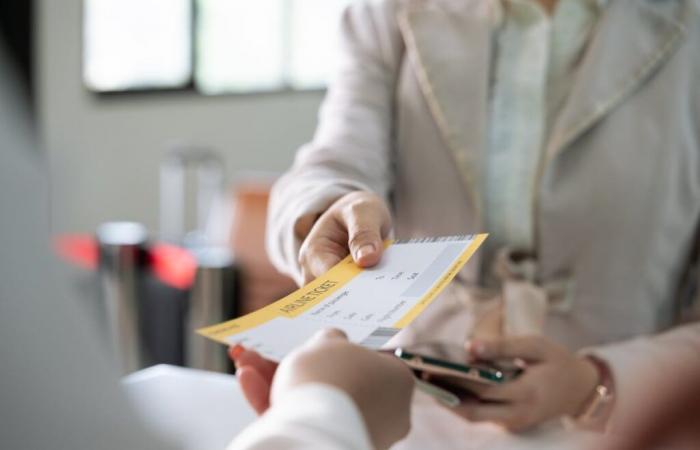As part of the finance bill for 2025the government has decided to leverage the air transport sector to reduce its budget deficit. Presented to the Council of Ministers on October 10, this measure aims to increase the solidarity tax on plane tickets (TSBA). Created in 2006 under the presidency of Jacques Chirac, this tax finances Unitaid, an organization dedicated to the purchase of medicines for developing countries.
Last year, the TSBA brought in almost 460 million euros. According to forecasts, its yield could double or even triple to reach 1.5 billion euros
in 2025. An amendment should be presented soon to define the precise terms of this increase.
Air ticket prices: significant increases for passengers and private aviation
The planned increase would not only concern commercial flight passengers, but also private aviation. According to Antoine Fraysse-Soulier, market analyst at eToro, business jets, until now relatively spared, could see their contribution increase from 63 to 200 euros per flight. This segment, which represents a small fraction of air journeys, would contribute up to 150 million euros on revenue
expected.
For economy class passengers, the impact could be just as noticeable on planes. The tax for flights of less than 5,000 kilometers would increase from 7.50 to 42 euros. This increase would be directly reflected in the price of tickets, making French airlines cringe. Air France, which already pays 140 million euros per year for this tax, estimates that this reform could penalize its competitiveness against European and Asian carriers.
A controversial tax with economic repercussions
The Minister of Transport, François Durovraytried to minimize the impact by describing this increase as “reasonable”. The latter notably explained to The Tribune that the additional cost for travelers could be limited to around ten euros for intra-European flights and several hundred for a Paris-New York round trip in business class.
However, these arguments struggle to convince players in the sector. The French Aeronautical and Space Industries Group fears a decline in attractiveness for the French airline industry, while EasyJet warns of the risks for the middle class. “This increase could make air travel inaccessible for many French people“underlined the company, recalling the essential role of aviation in social and economic mobility.
Towards ecological consequences on planes?
Beyond economic concerns, this tax also sparks an ecological debate. While some consider that an increase in prices could dissuade air travel, EasyJet insists that taxes do not directly reduce carbon emissions. But simply increase costs for consumers. And for good reason, neither the health crisis nor the flight-shaming (the shame of flying) have slowed down the growth of air transport. In 2023, 4.3 billion air trips were recorded, and the International Air Transport Association (Iata) predicts almost 5 billion passengers this year. This figure would erase the record of 4.54 billion from 2019, before the impact of the pandemic.
In the longer term, Iata anticipates a doubling of the number of air passengers by 2043, reaching 8.6 billion. This growth, estimated at 3.6% per year, will be mainly driven by emerging markets such as Asia-Pacific and the Middle East. At the same time, Airbus predicts that the global fleet of commercial aircraft will double to 48,230 aircraft in 20 years, boosted by the rise of the Asian middle classes.






